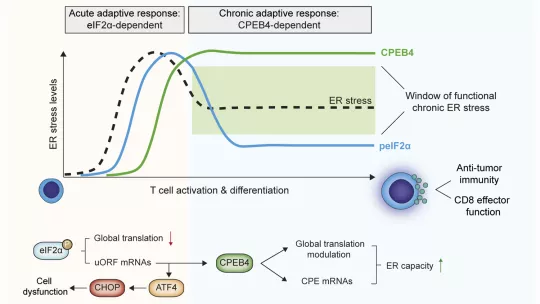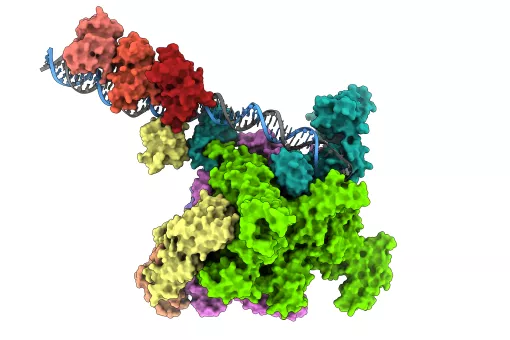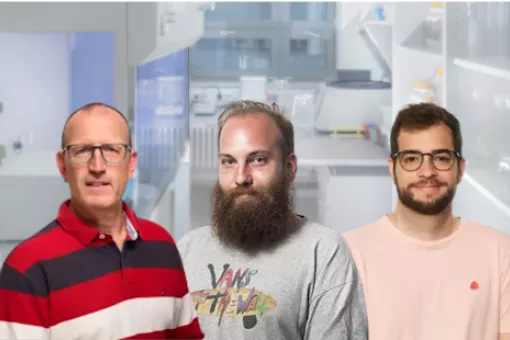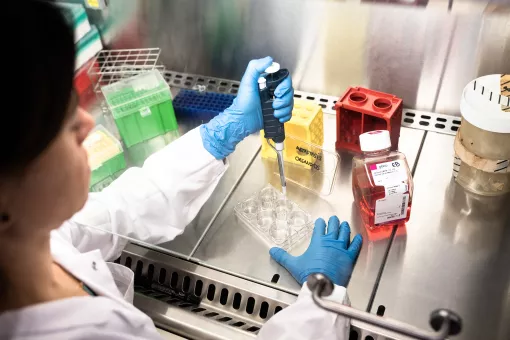Images
- CPEB4 allows these immune cells to adapt to the chronic stress caused by the massive secretion of cytokines, which are essential for them to adopt their effector function and kill cancer cells.
- Made by IRB Barcelona research staff, the discovery has been published in The EMBO Journal.
T lymphocytes are components of the immune system that are located in the tumour environment. They serve to identify and remove tumour cells. In order to perform this function, they must produce a large amount of secreted proteins, leading to chronic cellular stress.
A research team led by ICREA researcher Dr. Raúl Méndez at IRB Barcelona has revealed that the protein CPEB4 is essential for lymphocytes to be able to overcome stress. This capacity allows these cells to exert their antitumour function under the conditions of cellular stress that arise from their increased activity and the tumour environment itself.
“If we block CPEB4, T lymphocytes cannot handle the stress and they die, thus preventing them from halting tumour growth. Therefore, CPEB4 is a factor to take into account to guarantee the effectiveness of immunotherapy for the treatment of cancer,” explains Dr. Raúl Méndez, head of the Translational Control of Cell Cycle and Differentiation Laboratory at IRB Barcelona.
The microenvironment of the tumour is also a region where cellular stress is exacerbated by the lack of nutrients and oxygen caused by the rapid reproduction of cancer cells.
Acute stress vs. chronic stress
The most prevalent type of cell stress, known as “acute” cell stress, is intended to quickly resolve a possibly dangerous situation or eliminate the cell itself. In contrast, chronic stress is present in many physiological conditions, and it allows certain cellular functions to be carried out. An example is T lymphocytes, for which chronic stress is a necessary mechanism to cope with these situations.
“Interventions that enhance the adaptation of immune cells to chronic stress, rather than acute stress, would favor the immune response against tumours,” says Dr. Marcos Fernández-Alfara, first author of the article. Dr. Fernández-Alfara carried out this work as part of his PhD studies at IRB Barcelona and he now works at Clarivate Analytics.
Published in The EMBO Journal, this study is based on previous work by Dr. Méndez's team, which had already identified this new response to chronic cellular stress. The laboratory will focus future research lines on detailing how age and diet influence CPEB4 levels and, therefore, an adequate response to stress.
This work has been carried out in collaboration with Dr. Eduard Batlle's laboratory, also at IRB Barcelona, and with contributions from the Biostatistics and Bioinformatics, Histopathology, Functional Genomics, and Advanced Digital Microscopy Core Facilities (IRB Barcelona), as well as the Flow Cytometry Facility at the Barcelona Science Park
Related article:
Antitumor T cell function requires CPEB4-mediated adaptation to chronic endoplasmic reticulum stress
Marcos Fernández-Alfara, Annarita Sibilio, Judit Martin, Elsa Tusquets Uxó, Marina Malumbres, Victor Alcalde, Verónica Chanes, Adrià Cañellas-Socias, Sergio Palomo-Ponce, Eduard Batlle and Raúl Méndez
The EMBO Journal (2023) DOI: 10.15252/embj.2022111494
About IRB Barcelona
The Institute for Research in Biomedicine (IRB Barcelona) pursues a society free of disease. To this end, it conducts multidisciplinary research of excellence to cure cancer and other diseases linked to ageing. It establishes technology transfer agreements with the pharmaceutical industry and major hospitals to bring research results closer to society, and organises a range of science outreach activities to engage the public in an open dialogue. IRB Barcelona is an international centre that hosts 400 researchers and more than 30 nationalities. Recognised as a Severo Ochoa Centre of Excellence since 2011, IRB Barcelona is a CERCA centre and member of the Barcelona Institute of Science and Technology (BIST).
















